The aurora hunters who chase the Northern Lights
- Published
Photographers watch the spectacle of the Aurora Borealis for hours at a time
Some people are prepared to stand for hours in the freezing cold on a winter's night to watch and capture the Northern Lights. Meet the aurora hunters.
Michelle Cumming has been fascinated with the Northern Lights since she saw the phenomenon for the first time in September 2020.
"I've made last minute dashes in my unicorn PJs," says the 42-year-old, who lives in Moray on Scotland's north east coast
"And I've had my backpack and flask prepared to go aurora hunting.
"I often take my dog Dexter with me, wrapping him up in a fleece blanket while we stand and watch the aurora. There have been several 1am excursions."
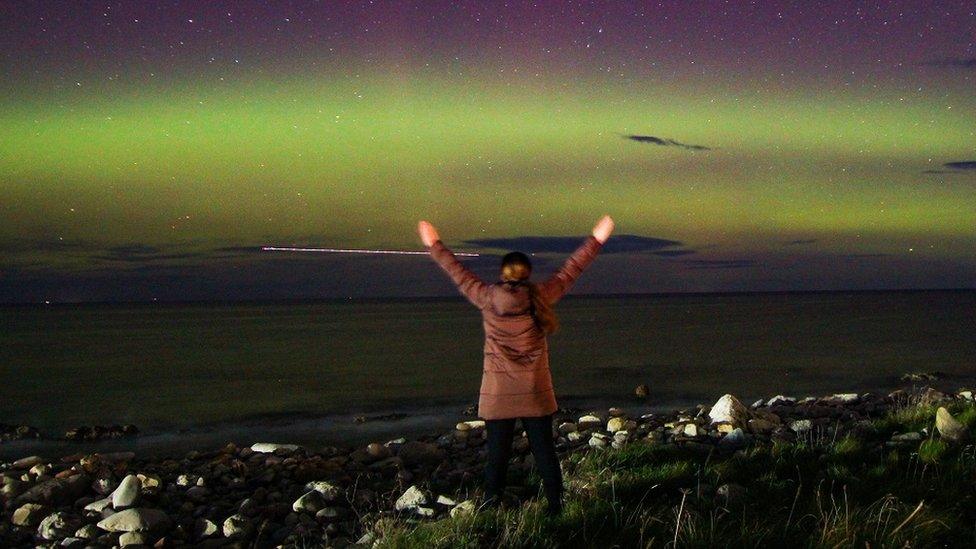
Michelle Cumming enjoying a display of the aurora with the lights of an RAF jet streaking across the sky
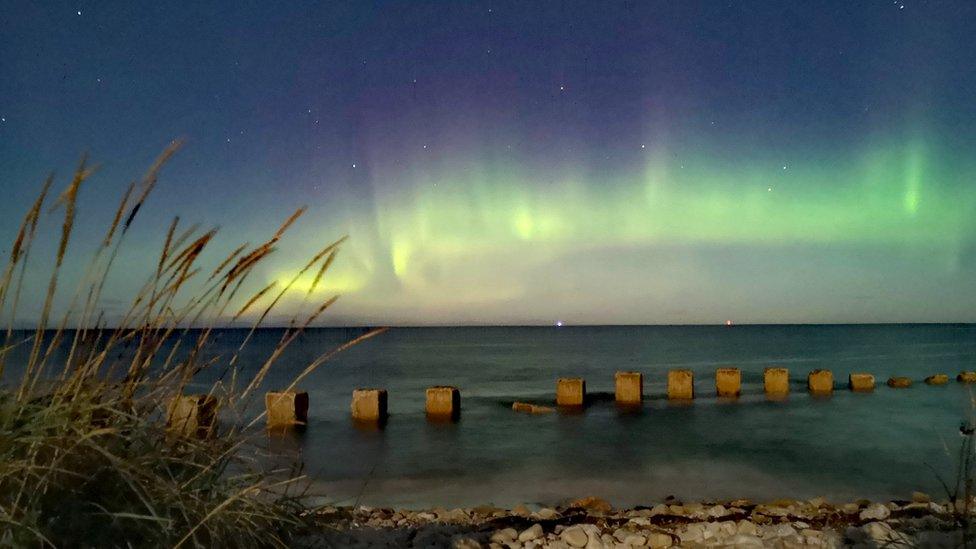
A picture Michelle Cumming took of her first aurora, seen from Lossiemouth beach last year
Michelle, who works in admin at Moray Council, says her first encounter was during a walk on a beach at Lossiemouth.
"That night blew me away," she says. "Not only did the aurora show but it danced.
"What I remember most vividly from that night is not only my awe at seeing such a sight, it was the chorus of wonder from the spectators in the darkness further down the promenade."
The aurora is a natural phenomena caused by geomagnetic storms from the Sun. It can appear in the sky as rays of light which shimmer and "dance".
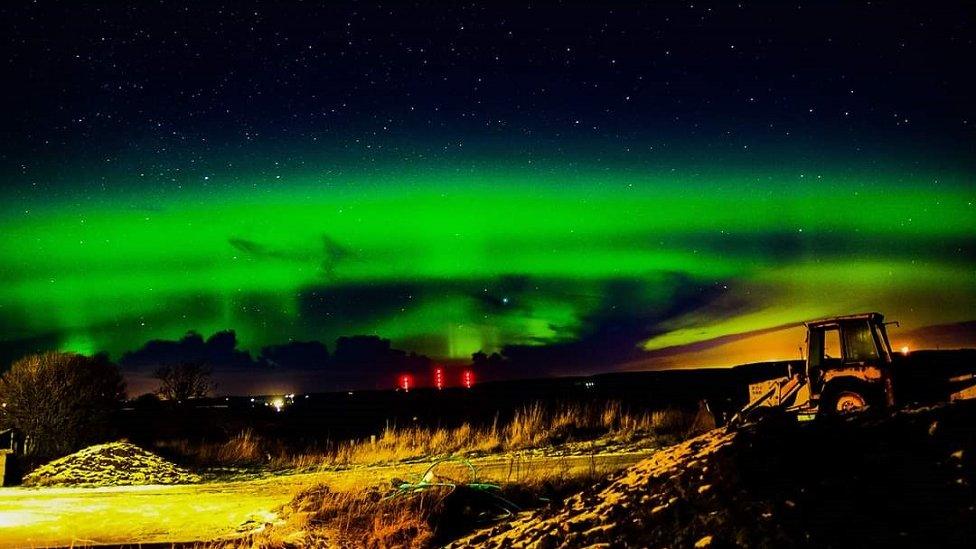
One of Jacquie Murray's images of the aurora taken from Peterhead
Dark autumn and winter nights offer the best chance of seeing displays - if skies are clear - and there are websites, apps and social media groups providing forecasts and alerts for when they might occur.
In the UK, Scotland is one of the best places to see the aurora but powerful displays have also been visible from England, Wales and Northern Ireland.
Aberdeenshire-based Jacquie Murray also tries to see the aurora whenever possible.
"I first encountered the aurora in 1986 driving a bus from Aberdeen to Peterhead," she says.
"I stopped the bus to allow the passengers to see it."
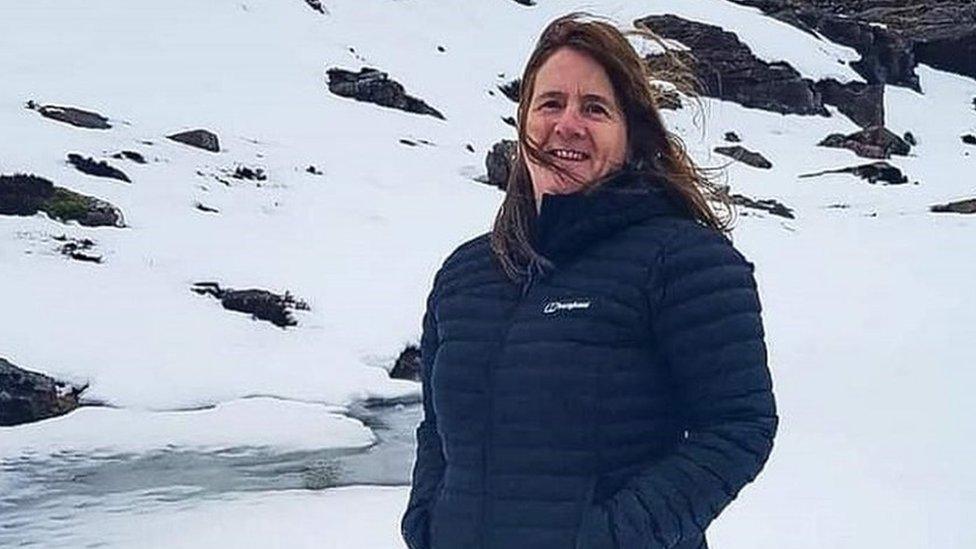
Jacquie Murray has had a long interest in the aurora
Jacquie, a health and safety inspector with an energy company, took a keen interest in photography six years ago - mainly to capture images of the aurora.
She says: "I have at times seen myself standing in the freezing cold in minus temperatures a good four to six hours either waiting or watching.
"You have to be keen and willing to drive to areas where there is little or no light pollution, check for clear skies, be patient - and look north."
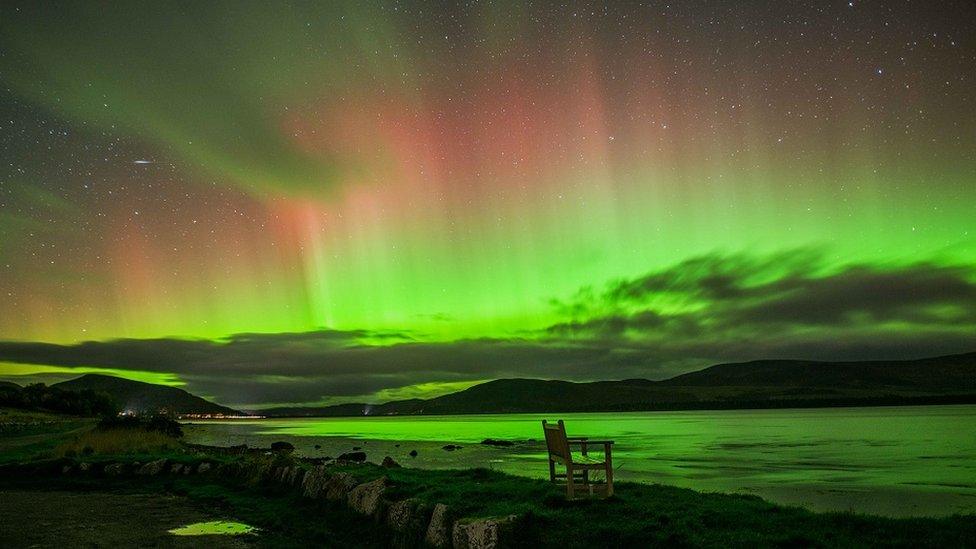
A photograph of the aurora taken by Chris Cogan
Chris Cogan is among the lucky ones who can see the aurora pretty much from his doorstep, living in the small community of Muie in Sutherland in the Highlands.
The 54-year-old joiner says: "I sometimes go out for 15 minutes, take a few photos and go back in as the conditions or aurora are not the best.
"Some nights I will watch the green arc of the aurora form, grow bigger and spread nearer to me and I will wait until she 'lets go' - aurora spotters' term for when it starts dancing and putting up huge beams.
"This can be a few hours waiting."
Chris says some people may have seen the aurora without realising it.
"To the human eye they're just white light, like fog with stars on the horizon, but a camera or phone pick up the colour," he says.
"Some very powerful auroras, the human eye can see the green or orange."
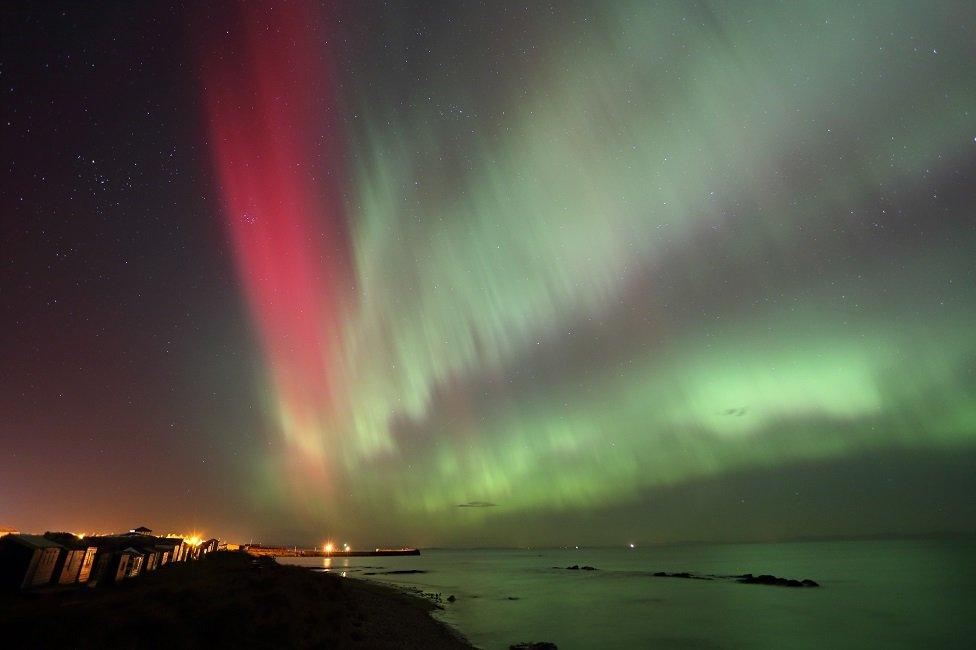
A photograph of the aurora taken by Alan Tough
Alan Tough, an Elgin-based whisky industry chartered engineer, is another keen Northern Lights photographer.
He has been interested in astronomy since he was a boy, and remembers staying up to watch Neil Armstrong take his first steps on the moon.
Alan is a member of the British Astronomical Association and regularly sends reports and photographs to its aurora section. Like some other aurora hunters, he also frequently submits images to BBC Weather Watchers.
He says: "Despite growing up under the dark skies of Speyside, I didn't see my first aurora until, probably, the late 1990s.
"I've been seriously photographing the aurora ever since I got my first digital camera back in 2003."
He has also seen the lights in Canada, Iceland and Norway - and he and his wife were almost shipwrecked while sailing back from the Arctic Circle on a Northern Lights cruise in 2019.
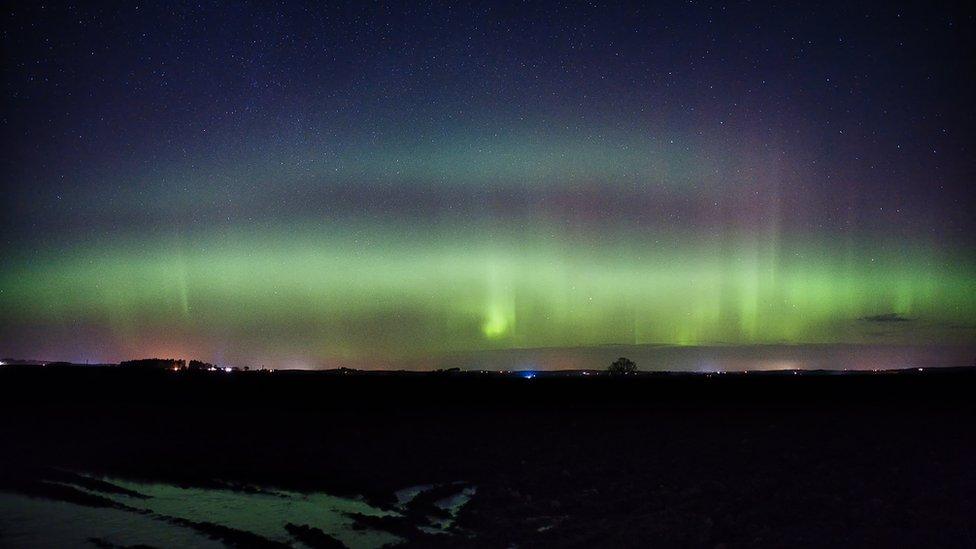
An image Desiree Ventura took of the powerful display she saw from near Newburgh
There are always eager new recruits to the band of people prepared to put up with freezing weather to catch a glimpse of the lights' ethereal glow.
Among them is Desiree Ventura, 33, who lives in Aberdeen - a city with a song about the aurora.
"I've been hunting the aurora for a couple of years now," says the content creator and amateur photographer, who is originally from Italy.
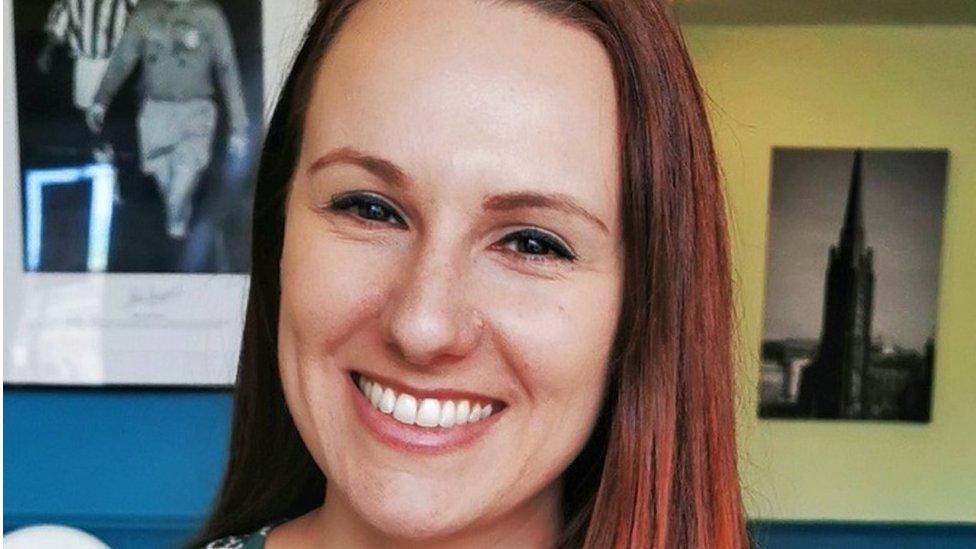
Desiree Ventura says seeing the Northern Lights is a cause for excitement
Last year, she photographed the lights for the first time but the display was only visible as a faint glow on her camera.
Then earlier this month she saw it for the first time with her own eyes from near Newburgh on the Aberdeenshire coast.
"It was such a strong event and the whole display was clearly visible to the naked eye. I was so excited," says Desiree.
"The show lasted for over an hour, but it was so spectacular that I didn't even realise I had been standing there for that long."
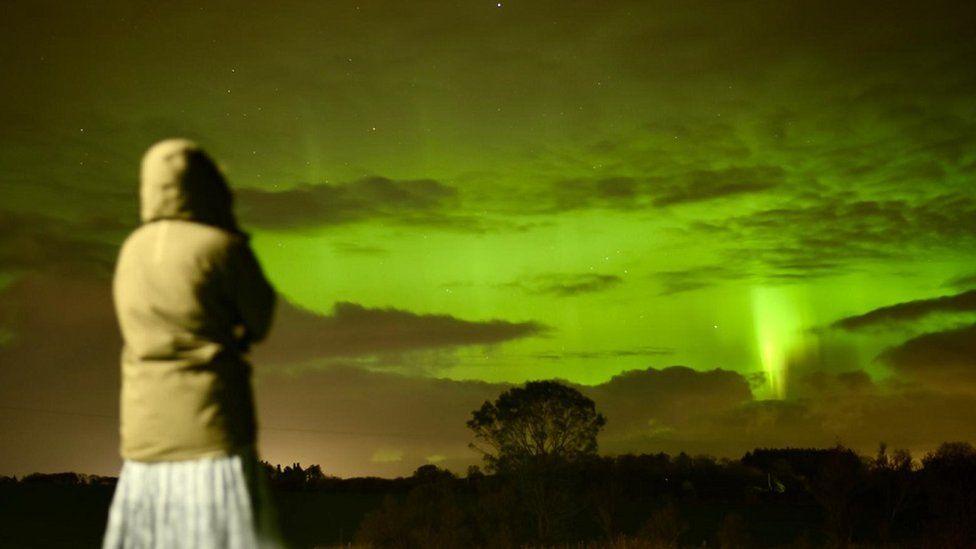
A photograph by Dawid Gierszewski, who has been capturing images of the aurora since last year
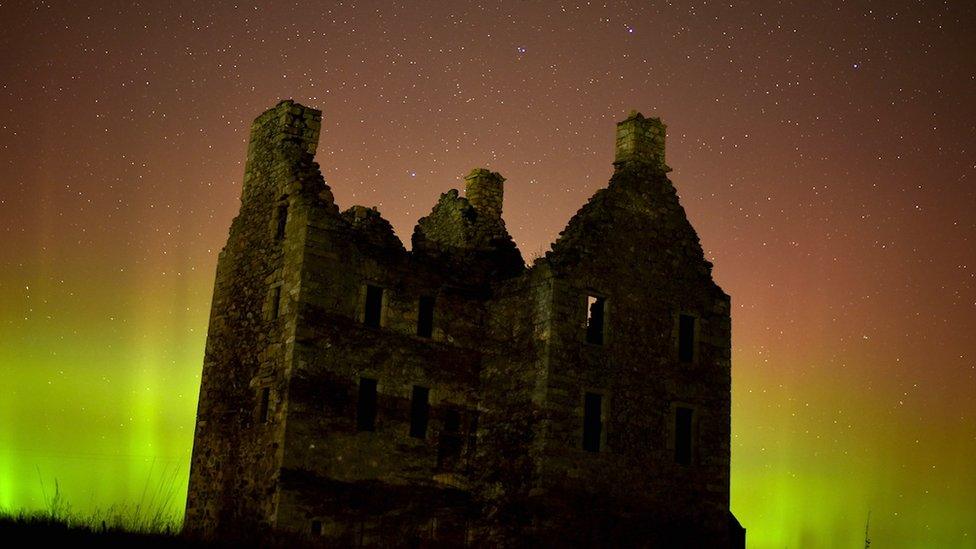
Dawid's picture of the aurora and Knockhall Castle near Newburgh
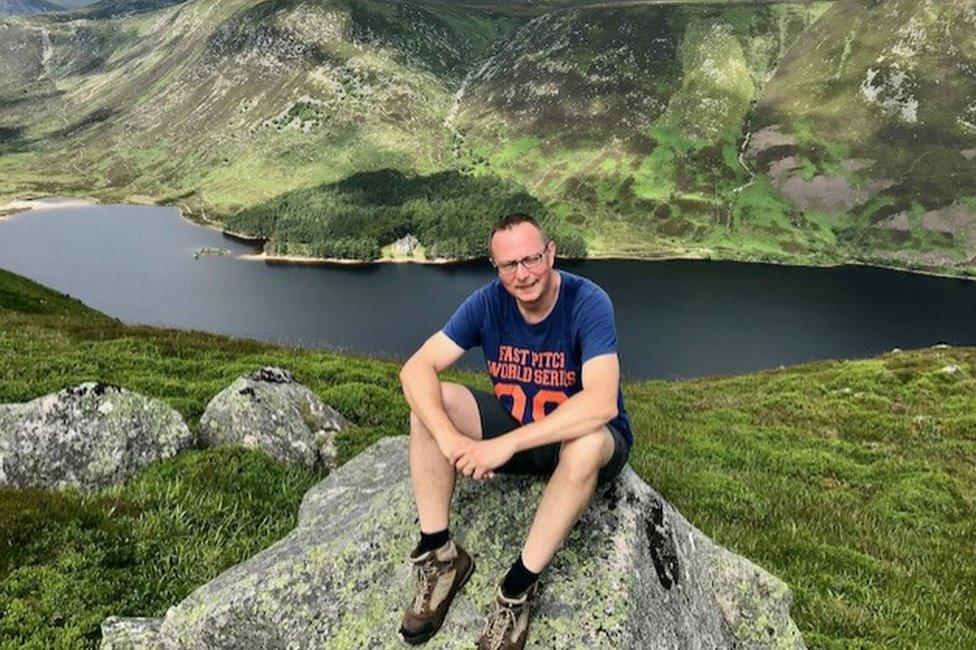
Dawid Gierszewski is happy to stay outside for four hours watching the aurora
Dawid Gierszewski, a 46-year-old window cleaner, has seen the aurora from Aberdeen beach.
He says: "The aurora is a wonderful sight. It is evidence of how beautifully the world was created.
"Sometimes I stay outside for three to four hours waiting for or watching the aurora."
The solar activity behind the aurora peaks in cycles of about every 11 years, and Caithness Astronomy Group chairman Gordon Mackie says the next few years could offer more opportunities for seeing it.
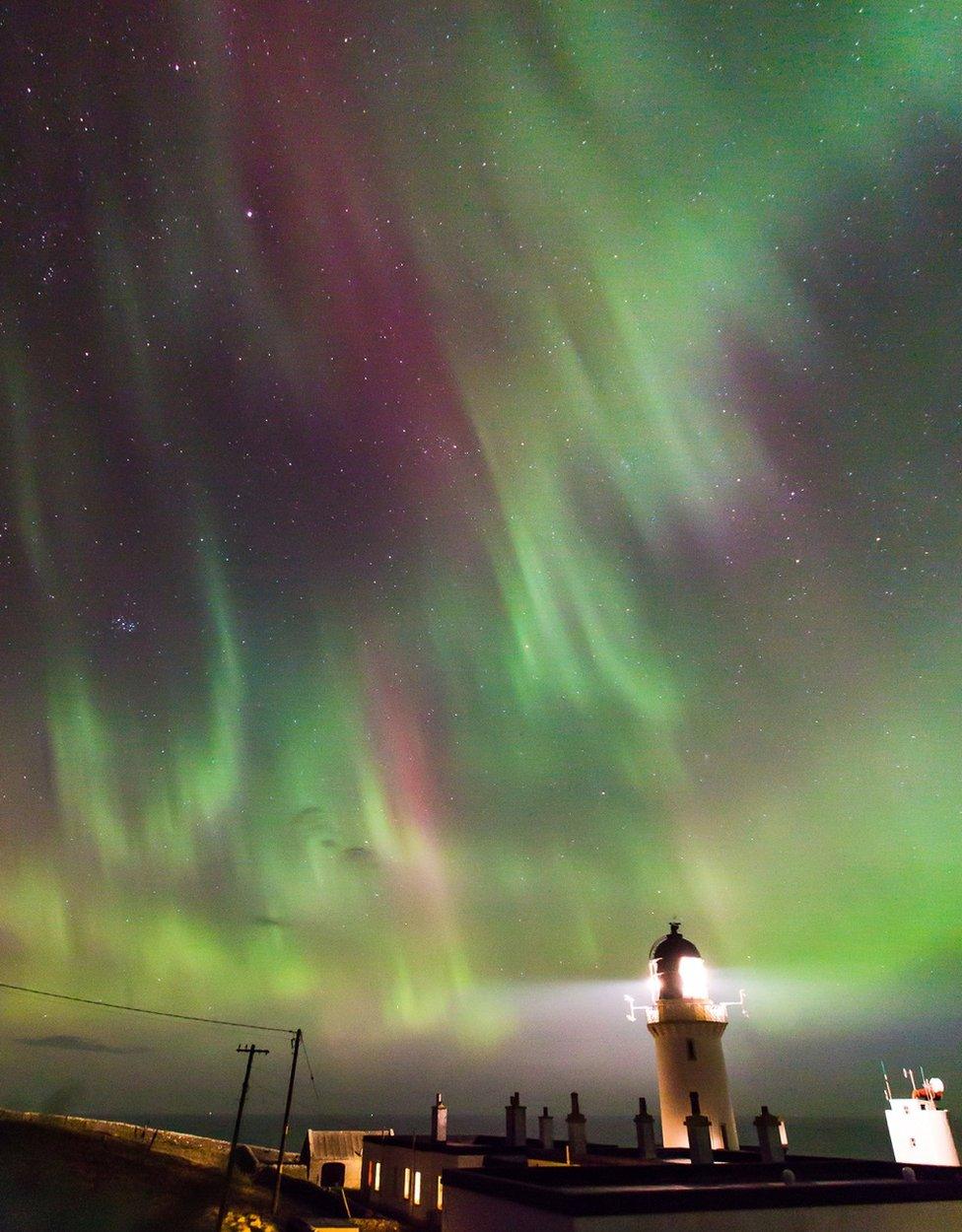
Gordon Mackie says there could be good opportunities for seeing the aurora over the next few years

The 53-year-old chemist, who lives in Thurso, says: "With the next peak due in a couple of years time we should see a good number of displays over the next four years.
"For a few years around solar activity peak, sightings from the north of Scotland are fairly common.
"During the last peak in activity I was seeing the aurora more than 30 times a year."
And he added: "A good display is a magical sight likely to be remembered for a very long time.
"I've seen it fill the entire sky numerous times - you look up in awe, mesmerised by the dancing lights."